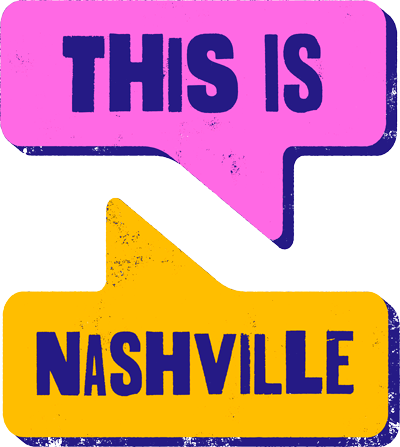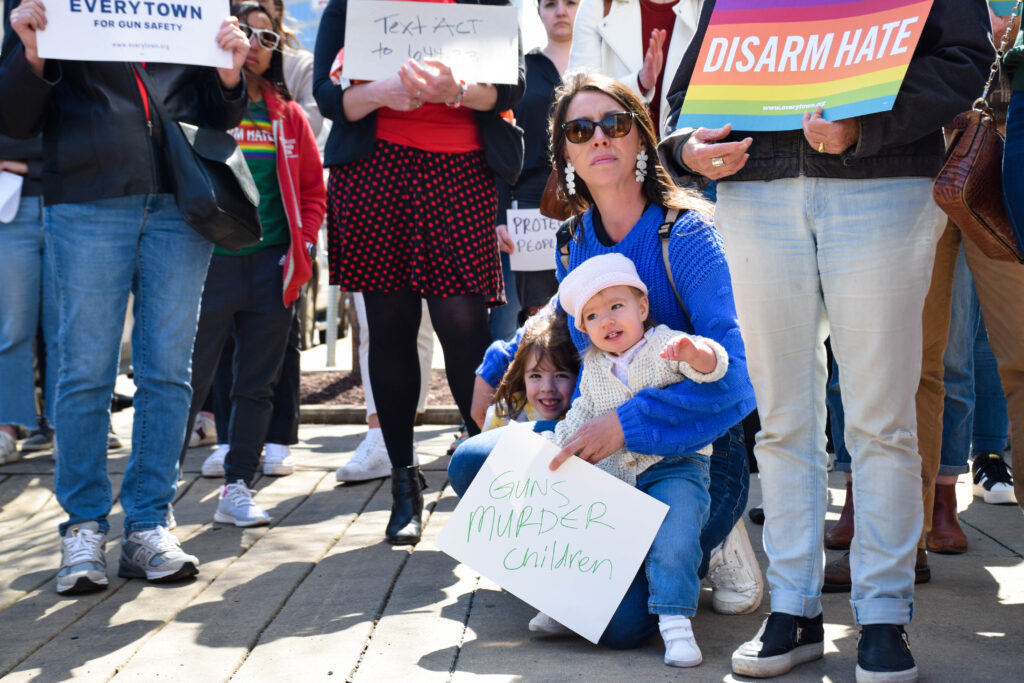
At least 100 activists gathered in front of Tennessee’s legislative offices to demand gun reform in the wake of the Covenant School shooting.
A tear ran down Rafiah Muhammad-McCormick’s face as she called on lawmakers to make changes to the state’s laws.
“How many babies got to die? How many people got to die? How much blood you got to see in the street to want to make a move to gun legislation?” she said.
 Paige Pfleger WPLN News
Paige Pfleger WPLN NewsRafiah Muhammad-McCormick attended the rally with Mothers Over Murder, or MOM. Her son was killed by gun violence.
Three children and three school staffers were killed in Monday’s mass shooting. The suspect also died.
The victims have been identified as Evelyn Dieckhaus, Hallie Scruggs and William Kinney — all were not yet 10 years old. And the adults were Cynthia Peak, 61; Katherine Koonce, 60; and Mike Hill, 61.
Now activists like Muhammad-McCormick want to know if this will be the tipping point. Will Tennessee’s legislators move to tighten the gun laws they have been loosening for years?
‘We need more than words’
Monday’s mass shooting is set against a stark backdrop in Tennessee. For years, conservative lawmakers have made it easier for more people to have access to more guns.
“The people in this building with whom we serve do not feel like they’re being held accountable, except to one special interest group,” Rep. John Ray Clemmons said to the activists gathered outside the legislative building.
Clemmons was referring to Republican lawmakers who receive funding from the National Rifle Association to continue making Tennessee a more gun-friendly state.
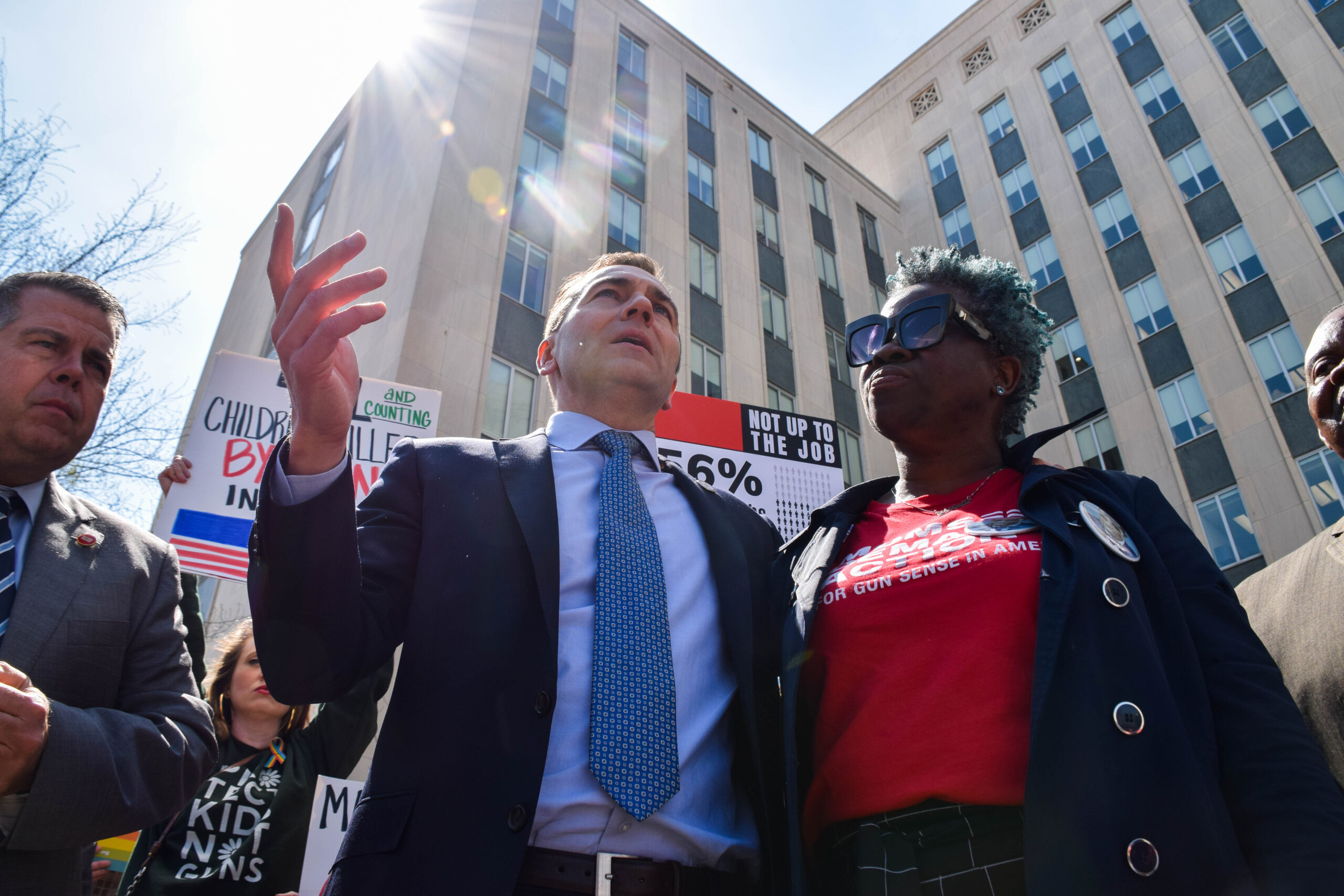 Paige Pfleger WPLN News
Paige Pfleger WPLN NewsRep. John Ray Clemmons addresses the crowd at the Moms Demand Action rally the day after the mass shooting at Covenant School.
“We need action. Yes, we need more than words,” Clemmons told the crowd. “And I will tell you, the only thing preventing action is a lack of accountability.”
In this legislative session alone, conservative lawmakers have introduced several bills that loosen gun regulations. In 2021, Tennessee became a permitless carry state.
More: Here are the bills that gun control advocates are watching during this Tennessee legislative session
And just this week, a federal judge cleared the way to allow Tennesseans as young as 18 to carry handguns without a permit.
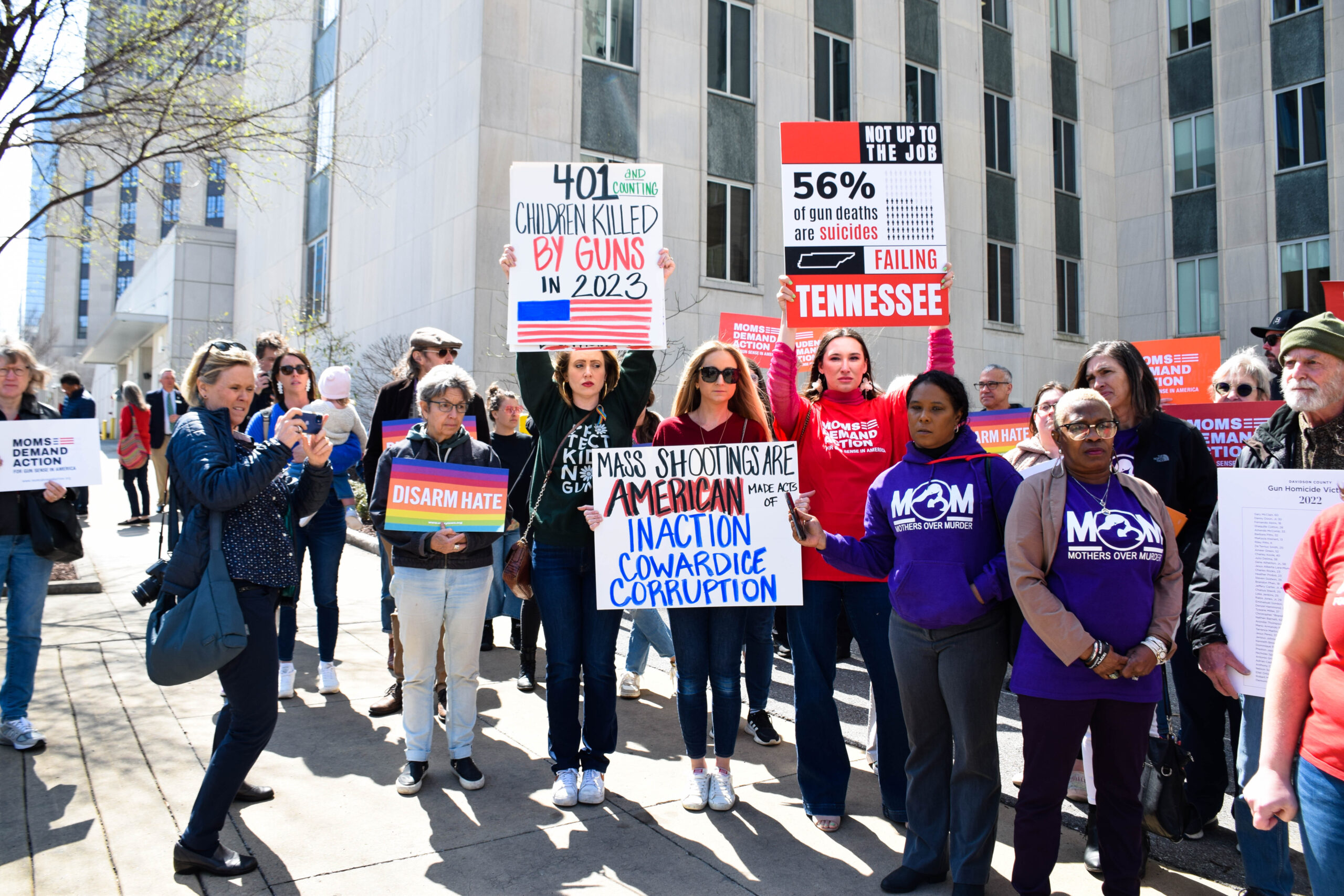 Paige Pfleger WPLN News
Paige Pfleger WPLN NewsRallygoers hold signs condemning recent gun violence against children.
The guns
Across the city, Metro Nashville Police gave an update about the shooting.
Police Chief John Drake said that the perpetrator, Audrey Hale, had purchased seven guns from five different gun stores in the area. All were obtained legally.
Three of those weapons, including two assault-style firearms, were used during the shooting.
“(Hale’s) parents felt that (Hale) should not own weapons,” Drake said.
Though he didn’t have further details, he said that Hale was undergoing treatment for his mental health.
“Had it been reported that (Hale) was suicidal or that (Hale) was going to kill someone and had been made known to us, then we would have tried to get those weapons,” Drake said.
But as it stands, Tennessee does not have an extreme risk protection order law, more commonly known as a “red flag law”. It would allow families like Hale’s to request the guns be removed temporarily if Hale was a risk to himself, or others.
More: Gun control advocates try to persuade Tennessee lawmakers not to lower the carrying age to 18
Advocates have been pushing for laws like that in Tennessee for years, but with a Republican supermajority, gun control measures don’t make it to the governor’s desk.
‘I had to send him to school today, and it was terrifying’
Parents in Nashville are grappling with the realities of the state’s gun laws, and mourning the young lives lost.
It was a harsh reality many faced when they dropped their own children off at school Tuesday morning.
“I have an 8-and-a-half-year-old son, and I had to send him to school today,” mom Becca Dryden said to the crowd at the rally. “And it was terrifying.”
The victims killed in the shooting were around the same age as her son.
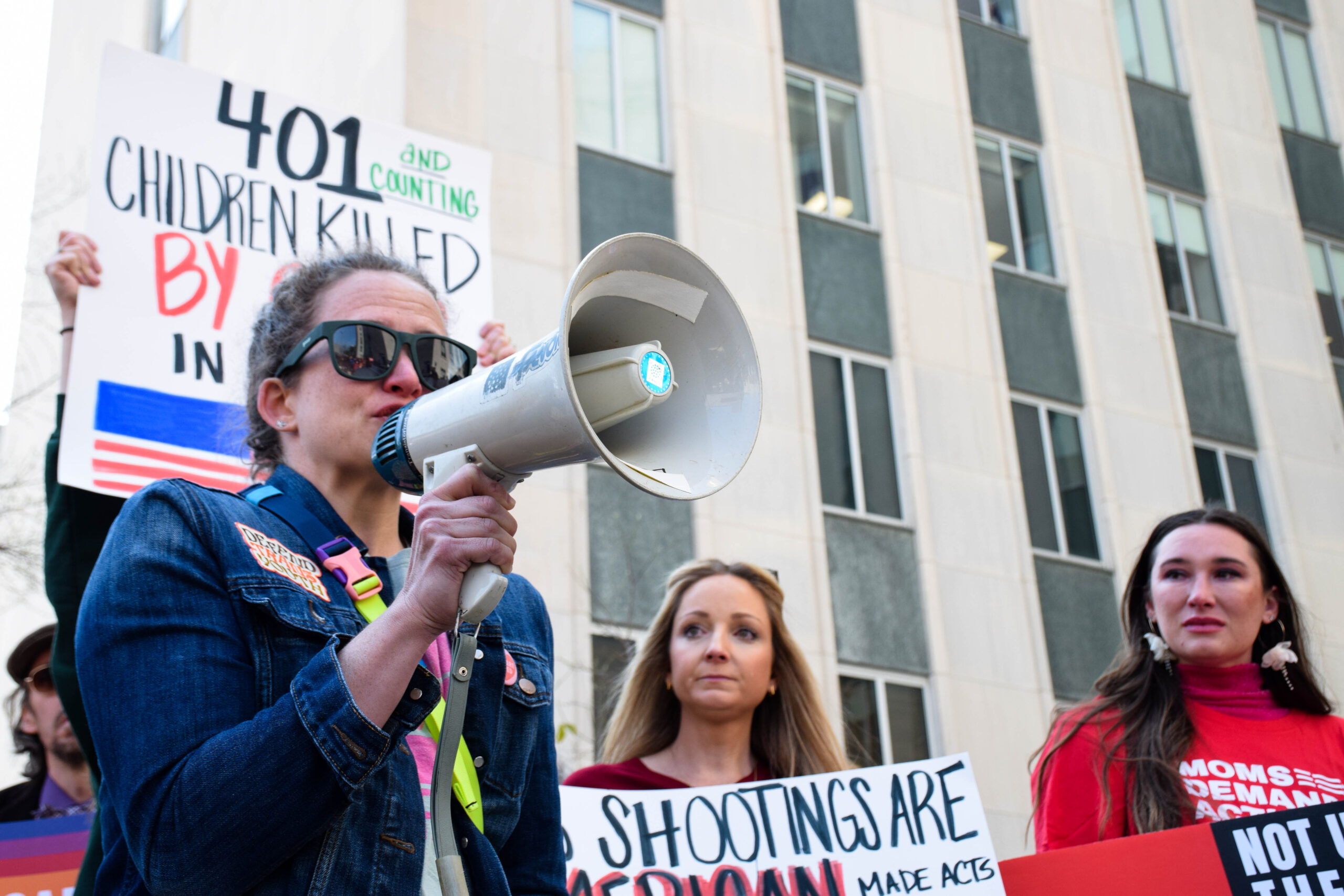 Paige Pfleger WPLN News
Paige Pfleger WPLN NewsSome moms, like Becca Dryden (left), got emotional speaking about the new fears they have dropping off their children at school following the Covenant School shooting.
Dryden says she cannot imagine the pain that those parents are feeling today, and the pain of parents around the community who are having to explain another school shooting to their kids — this time, closer to home.
Rafiah Muhammad-McCormick knows that pain intimately. She lost her son Rodney Armstrong to gun violence a few years ago.
She wants to see lawmakers push for more comprehensive access to mental health treatment in hopes of preventing future shootings.
“You want everybody to have access to guns,” she said, gesturing towards the legislative building and the lawmakers inside. “OK, fine. We can use that argument. Everybody has a right to get a gun. But if they have a right to that now, we have a right to have free access to mental health services.”
She pauses for a moment, then adds, “Prayer without action is not enough.”
 Paige Pfleger WPLN News
Paige Pfleger WPLN NewsRafiah Muhammad-McCormick (left) and Clemmie Greenlee (right) both lost children to gun violence.


